HISTORY AT NORTHAMPTON

History Dissertations: Top Tips for Students

We’ve finished our most recent dissertation cycle here at Northampton. The marking is done and the results have been released. It seems a useful time to reflect as I prepare meetings to discuss projects with students for next year.
We’ve had some great results, some fascinating dissertations, some of them first class. As the convenor of our dissertation module and a supervisor I have the pleasure of seeing individual projects through to completion as well as seeing the ‘whole picture.’ I’m the first to see the overall results which is very exciting!
Seeing students excel in their dissertations is among the most rewarding parts of my job. The dissertation is the culmination of their studies, where they test all the skills they have acquired and really think deeply about the subject in the context of a detailed research project. It is when they truly become ‘historians.’
Some of the results are publishable and some do get published and that is tremendously satisfying for us and the students.

Students also really enjoy the process overall. We are consistently told by students near the end of their studies (often at graduation) that it was their favourite experience at university. They get to focus on their specific interests, develop their own ideas.
That doesn’t mean, of course, that it isn’t hard work, difficult and stressful. Developing high quality research and making it worthy of good rewards is all of these things.
So here is a brief description of what a dissertation is and some tips for succeeding with the dissertation and having a good experience – some dissertation do’s and dont’s that we communicate to our students at the start of the process.
Every project is different and only you and your supervisor know precisely what you should be doing from one point to another but these guidelines generally apply to most dissertations. This is a longer blog than I usually write but there’s a lot to get through!
What is a Dissertation?

A history dissertation is a written study (Most universities specify around 10,000 words) of a specific historical topic/theme/person/event.
It forms a significant part of the third year of an undergraduate degree (many universities, including us, double weight them so they count for two modules).
It should be based around a series of primary sources (the volume and type depends on the project) and should include a comprehensive review of the existing historical literature (this is usually done in the introduction).
Dissertations are not ‘taught’ in the way that other modules are – they are individual projects supervised by academic members of staff.
We provide whole group guidance for our third years in four sessions across the academic year (some other institutions do this, some don’t). But in the main your experience will involve one-on-one supervisions.
A dissertation is not a long essay and it is not a source analysis.
Unlike essays the argument of the dissertation must be based around and driven by primary sources and the secondary sources (the books, articles etc) are used to contextualize and help you interpret the findings from the primary sources.
Unlike source analyses the sources must be used to build the overall argument – merely commenting on their content is not enough. Your footnotes in the main chapters should mainly be to your primary sources – this is why we call them ‘primary.’
Some universities (including ours) build in other assignments to the dissertation module (we have a Viva which forms 10% of the overall grade). These are important staging posts towards the final product. But the showpiece is always the written dissertation and that’s the piece of work you’ll have on your bookshelf after the deed is done.
Do’s and Don’ts
1. Choosing the Topic : Picking a topic is subject to a range of different factors: In short it must be interesting to you, feasible in the time (1 year) and space (10,000 words) you have, possible with regards to primary source material and worthy of study.
DO pick a topic you are interested in, DON’T pick something because it seems easy. You will be studying this topic for a whole year and it will be really tiresome if it’s something that doesn’t really interest you.
DO take time thinking about your topic and speak to your prospective supervisor in detail about this (probably in several different meetings). DO read around the subject. DON’T rush this – if you change your mind midway through the project it will almost definitely impact negatively on the outcome (are you listening Brexiteers?)
Ask yourself a series of questions. What period of history am I interested in? Am I a political, military, social, cultural or economic historian? What particular themes have I enjoyed on my modules, is there anything I particularly enjoyed (think of the assignments you have done).
There’s no problem starting with quite a broad topic then narrowing this down as you scope the project (see below).
But the topic needs to be worthy of study in the sense that there needs to be a rationale, it needs to be something that is of interest to others and some importance, not just interesting to you. In the introduction you’ll need to justify the topic, why are you studying it and what the importance of it is.
2. Scoping the topic : DO scope your project carefully before deciding on it and DON’T stick stubbornly to your beloved subject if it becomes clear it can’t be done.
Are the primary sources available and can you use them? If they are written in a foreign language will you be able to read them? Is there much more that can be said about the topic? Can the project be done in one year and can it be given sufficient justice in 10,000 words? – (a new history of the Second World War is probably not feasible, neither is a new history of the Industrial Revolution).

The final product will be only four times the length of this blog (we exclude footnotes and bibliography) so what at first seems a daunting volume of writing will soon become quite a restrictive format.
Work spent early on planning and researching the project (as opposed to researching the subject) will be some of the most valuable time you’ll spend on it.
3. Organising your work : DO start work early. DON’T leave it until the beginning of the third year. You’ll have a very busy and hectic final year anyway, so don’t make it even more stressful.
Make sure you start the project over the summer between the second and third year. Engage with any preparation modules in the second year – ours is called ‘Research Skills in History.’
Over the summer get some reading done, get to the archives and start thinking about a structure – very valuable time, especially if an unexpected personal or family issue means you have to take some time off in the third year.
You need to take a break from your studies, that is important, but there should be time for work too.
DO work consistently on the project at an even pace, DON’T work in ‘fits and starts.’ Try to work on the dissertation each week so you remain ‘in contact’ with the research.
Successful academic research requires us to create a space in our minds that is devoted to the project – it becomes part of us (not physically of course but that’s how it feels). A few weeks away will distance you from the project and you’ll need to spend several days (or more) ‘getting back into it.’
As academics with teaching and admin to take care of as well as research we’re all well aware of that. I’m looking forward to getting my teeth into my new project on the history of emotions over the summer.
4. Supervisions : DO go to meetings with your supervisor and DON’T ‘bury your head in the sand’. Missing meetings (often because targets have not been met or little work has been done) will annoy your supervisor and if you make a habit of doing this will leave you flying solo with the project.

Academics require years of training and experience to manage their own projects – the simple truth is students (undergrads and postgrads) need supervision because they lack that experience.
Make sure you pay attention in supervisions and take notes for future reference. Try to stick to any plans and timetables agreed – its best to be realistic when setting these. Above all be honest, supervisors can’t help if they don’t have the full picture.
5. The Reading : DO think about what you need from your reading. You need three main things:
1. The main debates and arguments in your topic area – these are generally found in the introductions of books and articles.
2. The wider context within which your topic sits – this means finding reading dealing more widely with your period and topic so DON’T merely read the small number of books on the history of shoemaking in nineteenth century Northampton if that is your subject. Read about be wider history of that industry and the wider economic history of Britain in that period.
3. Some background and factual details with some examples.

Often students focus on number 3 and neglect the first two. You’re expected to distill and synthesize this material for the literature review in the introduction and to contextualize and compare your findings from the primary sources in the main chapters. Think about this as you read and take notes.
This means the best way is always to read the literature and study the sources in tandem. DON’T do one first then the other. You want the primary and secondary sources to have a productive conversation with each other.
More generally you should use your reading to familiarise yourself with your period/country/locale. As L. P. Hartley wisely said ‘The past is a foreign country, they do things differently there’: L. P. Hartley ‘The Go-Betweens’ . You will be a traveler in that foreign place (be it nineteenth century Britain or early modern France etc) so equip yourself with knowledge about the language, culture, politics and habits of that place, even if you’re not a social or cultural historian.
We all know how disorientating it can be in a new place and even if you’ve made visits there before in your modules this will be a much longer and important trip. A good textbook is a wise investment for this purpose, ask your supervisor to recommend a ‘goodun’.
6. Analysing the primary sources : This will be the really fun stuff and is often fascinating and rewarding. DO spend time with your sources, get to know them well, understand their quirks and foibles. Your relationship with the sources should be deep and meaningful, not a brief flirtation. Dissertations require more than a ‘quick look’ at the source material.
It takes a lot of time to read and thoroughly analyse sources, even online ones or visual sources so DON’T under-estimate this in your planning. You’ll understand them more fully if you have a little bit of reading under your belt but you should get to the sources ASAP.
Take a look at this excerpt from an early eighteenth century manuscript letter. How long might it take you to get through a long series of this type of document? What kinds of knowledge and practical skills might you need to use these types of sources? Not all sources will involve the same kinds of skills and knowledge, but all of them will require decoding and careful analysis.

More than anything else the best dissertations are often expressions of the deep knowledge that students have of their sources as windows on the period and area they are studying. If you find previously unstudied sources you stand a chance of finding something truly original but you might also find a novel way of interpreting well known sources.
7. The writing process : DO start writing early and DON’T leave this until the end. As soon as you have some ideas and some material from the sources get on with some writing and send it to your supervisor once drafted.
Start with an easier element of the project and this need not be the introduction (these are often best left until the end of the process). Dissertations need to be drafted, redrafted, redrafted again (possibly several times more) and copy edited before the final read through and submission.
Early writing will expose any weaknesses in the research plan, give you a good idea of what you can fit into 10,000 words, show you the gaps in your knowledge, gaps in your reading and any flaws in technical aspects of your writing remaining into the third year.
If you think that you work best under pressure with coursework, close to the deadlines, this won’t work for the dissertation. In any case you’ve probably not fulfilled your potential with the other coursework you’ve approached in this way.
8. Developing the argument : DO take time to really think about your project and the argument, DON’T rush to pull the trigger on this. What are the central debates and arguments in your topic area? What are the sources as a whole telling you about it?

This may be quite complex, a series of primary sources rarely give us a linear and simple narrative picture. Accept these nuances and acknowledge them.
What is the wider significance of your topic and findings? DO make the most of your work but DON’T be tempted to overstate the significance of your conclusions and simply dismiss all other research in your area.
Conclusions and arguments should be calibrated to the scope of the sources and the length of the study. Historical research is about building on the previous work done, not dismissing it all and starting again.
9. Staying calm : DON’T Panic and DO work through problems.

You will encounter problems, bumps in the road. This is inevitable in a project that lasts a whole year and involves so much work.
If you encounter a problem, either intellectual or practical, speak to your supervisor ASAP. They will have encountered this problem before and are best equipped to help you deal with it.
If you are suffering from stress and anxiety tell your supervisor, they may recommend that you see a counselor. There is no shame in this, its a stressful period in your life so access all the assistance you need to get through it.
The cycles of academic life are one of the things I love about the job – Seeing new students arrive, watching their knowledge and skills develop and seeing their work come to fruition in the dissertation and then graduate – it mirrors my own research cycle: Starting a research project, beginning the writing process, seeing the publication come to completion.

There’s a very pleasing symmetry to it all. I look forward, as ever, to next year’s dissertations. There will be frustrations but there’ll also be some fascinating work and, as ever, some real gems.
Good luck with your projects! Whatever the results don’t be too hard on yourself, if you gave it your best shot that’s all anyone can ask.
Mark Rothery, Senior Lecturer in Eighteenth and Nineteenth Century History
Share this:
Comments are closed.
Blog at WordPress.com.

- Already have a WordPress.com account? Log in now.
- Subscribe Subscribed
- Copy shortlink
- Report this content
- View post in Reader
- Manage subscriptions
- Collapse this bar
Department of History
Yale history dissertations.

During the late 1800’s, only a trickle of dissertations were submitted annually, but today, the department averages about 25 per year. See who some of those intrepid scholars were and what they wrote about by clicking on any of the years listed below.
Department of History
Best undergraduate dissertations 2019.
Since 2009 the Department of History at the University of Bristol has published the best of the annual dissertations produced by our final-year undergraduates. We do so in recognition of the excellent research undertaken by our students, which is a cornerstone of our degree programme . As a department, we are committed to the advancement of historical knowledge and to research of the highest order. Our undergraduates are part of that endeavour.
Listed below are the the best of this year’s undergraduate history dissertations, with links to the dissertations themselves where these are available. Please note that these dissertations are published in the state they were submitted for examination. Thus the authors have not been able to correct errors and/or departures from departmental guidelines for the presentation of dissertations (eg in the formatting of footnotes and bibliographies). In each case, copyright resides with the author and all rights are reserved.
- Work For Us
- History Dissertation Repository
The Northumbria Dissertation Repository was launched in October 2015 to share the best of the university's undergraduate research in History. While online repositories already exist for postgraduate theses, few include undergraduate research – despite the fact that many dissertations are original in conception, argument, and in their use of primary sources.
The History team at Northumbria is pleased to provide access to the excellent, archive-driven research undertaken by our final-year students. The dissertations included in this repository were all awarded first-class marks. They reflect the range of research expertise at Northumbria, as well as our commitment to research-based learning. Moreover, the pieces in this dissertation clearly testify to the skills, enthusiasm and hard work of our students.
We hope to add further examples of undergraduate research to the repository in subsequent years, thereby developing it as a useful resource.
If you have any further questions about the repository, please contact Dr Daniel Laqua or Dr James McConnel .
Medieval and Early Modern History
- Hide, Rachel : Tribal Resistance in Northern England and Scotland from the Roman Conquest to the Building of Hadrian’s Wall, 43-122 AD
- Husbands, Benjamin : The Afterlife of Joan of Arc: Visual Representations of the Maid of Orléans
- Watson, Hannah : A Feminist Analysis of the Reinforcement of Patriarchal Strategies within Families of the Late Medieval Gentry
Early Modern
- Curry, Adam : The Arthurian Reformation: The Changing Image of the Arthurian Legend During the English Reformation
- Clarke, Lucy : A Comparison of Female Prostitution in Eighteenth-Century London and Dublin
- Harrington, Helen : Gender and ‘Crimes of Speech’ in Seventeenth-Century York
- Weightman, Peter : The Role of the Commons of Cumberland and Westmoreland in the Pilgrimage of Grace, 1536
Modern British History
- Green, Jyoti : Female Same-Sex Desire in the Nineteenth Century: Approaches from Lesbian Feminist Theory
- Martin, Hannah : ‘Tragedy, Death, and Memory’: The Commemoration of British Coal Mining Disasters in the Nineteenth and Early Twentieth Century
- Riddell, Daniel : Tyneside and the Italian Risorgimento, 1848-1861
- White, Oliver : The Football League and the Game It Made: A Study of the Development and Transformation of Association Football, 1888–1914
- Aldis, Francesca : “They call this spring, Mum, and they have one here every year”: An Examination of the Evacuation Experience of Tyneside Schoolchildren 1939–1945
- Carr, Jessica : Women’s Work in Munitions Factories during The First World War: Gender, Class and Public Opinion
- Isles, Scott : More Than 'an Enemy's Name, Rank and Number': Information Gaines from Luftwaffe Prisoners of War and its Use for British Intelligence during the Battle of Britain, July - October 1940
- Macfarlane, Euan : British Naval Innovation and Performance before and during the First World War: The 1916 Sinking of the HMS Invincible
- Timms, Mathew : The North East and Economic Depression, 1935–1939: The Impact of the Team Valley Corporation
- Wickenden, Rebecca : ‘For Home and Country’: The Role of the Women’s Institute in the Northumberland and Durham Counties during the Second World War
- Corrigan, Chloe : More Than the 'Fuddy Duddy Co-op': The Consumer Co-operative Movement in 1960s Great Britain
- Fairbairn, Lily : 'Born to Struggle': Working-Class Women's Activism in 1970s Britain
- Kundu, Victoria : 'Roaming Mobs of Mutants!': Anti-Nuclear Culture and Protest in Britain, 1979-1989
- Sumner, Billy : Militant within Liverpool City Council 1983–1986: The Impact of and Reaction to a Left-Wing Political Movement in the Labour Party
- Tewson, Miles : The Process of Decolonization in Burma: Managing the Transition from Colony to Independent State
Modern European and International History
- Harold, Danny : Russian Exiles in Britain, 1918–1926: The Politics and Culture of Russia Abroad
- Heywood, Gareth : Education, Sociability and the Politics of Culture in Fin-de-Siècle France
- McGowan, Abbie : ‘Looted Art as an International Issue’: From Nazi Plunder to Restitution, 1939–1951
- Robertson-Major, James : A Long Half-Life: Responses to Chernobyl in Soviet and Post-Soviet Society
- Serafin, Marcel : Socialist Opposition in the Polish People’s Republic, 1964–1989
- Armstrong, Alasdair : Words as Weapons: Black Nationalist Poetry in America during the 1960s, 1970s and 1980s
- Foley, Lee : A Step Backwards: Nixon, Détente, and the American Space Program
- Henderson, Sophie : Disobedience and Defiance: Massive Resistance in Mississippi in the 1950s and 1960s
- Keen, Gavin : New York City’s Societal Influence on the Punk Movement, 1975–1979
- Lisle, Ben : ‘In no other business in America is the color line so finely drawn as in baseball’: An Analysis of Black Baseball’s Failed Attempts at Achieving Major League Professionalism, 1887–1939
- McGuinness, Chloe: Bridging the Gap One Bite at a Time: A Food History of African American Activism, 1955-2015
- Paterson, Ewan : Redefining Watergate: Surveillance, Paranoia and Pop Culture in America’s Long 1970s
- Watson, Lucy : Representing the 1970s on TV: That '70s Show
- Weaver, Alice : Peace Activism and Women’s Politics: Women Strike for Peace in Context, 1961–1972
History Research
- History Research Groups
- Postgraduate Research

RESEARCH EXCELLENCE FRAMEWORK 2021
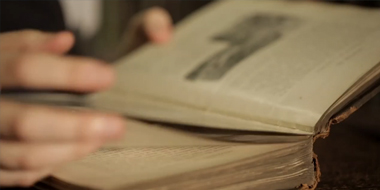
History and American Studies Blog
A blog on all manner of research, publications, lectures, conferences, symposia, and more from Northumbria University's History and American Studies programmes.

Humanities Staff
Our students learn from the best – inspirational academic staff with a genuine passion for their subject. Our courses are at the forefront of current knowledge and practice and are shaped by world-leading and internationally excellent research.
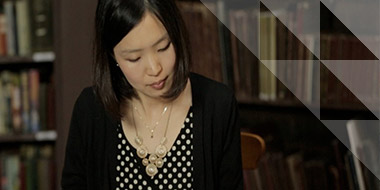
Courses within Humanities
The Department of Humanities offers a number of undergraduate and postgraduate courses. By studying at Northumbria you will become part of a passionate and creative community.
Latest News and Features

Audiobooks Studio Launched for North East
New Writing North and publishers Hachette UK have opened a dedicated new audiobook recording…
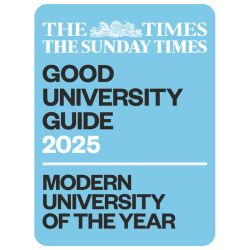
The Times and The Sunday Times name Northumbria ‘Modern University of the Year’
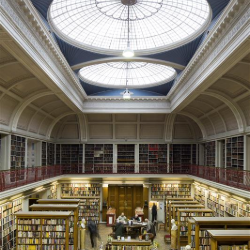
Researchers return to the Lit & Phil for new season of public talks
Northumbria University academics are once again preparing to present their world-leading research…

Advice available for students ahead of A-level results day
As thousands of students await their A-level results on Thursday 15 August, Northumbria University…

New exhibition explores sense of Belonging through art
A new exhibition, featuring work by North East artists and exploring their connection to the…

New North East cultural partnerships announced
Northumbria University has announced partnerships with two of the North East’s largest cultural…

Northern Writers’ Awards 2024 announced
New Writing North and their partners celebrated the 25th Northern Writers’ Awards on Tuesday…
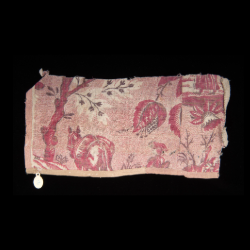
Migration, Adaptation, and Innovation: Two exclusive talks at The Bowes Museum
The Bowes Museum in Barnard Castle will host two exclusive talks this month by members of Northumbria…
Upcoming events

CHASE LECTURE - Darren McGarvey
Lecture Theatre 002

What is to become of us?

Tackling diversity in STEM one aspiration at a time
Back to top

150 Strong History Dissertation Topics to Write about

Writing a dissertation is one of the most challenging and exciting moments of an academic career. Such work usually takes a great deal of time, courage, and intellectual effort to complete. That’s why every step in your work process is essential.
It all starts with finding a good topic, which can be a challenge of its own. It especially matters when it comes to liberal arts subjects. In social studies, literature, or world history options are practically endless.
Coming up with history dissertation ideas, you need to think of historical events that interest you. We get it, choosing one is tough. There can be too much to wrap your head around. That’s why IvyPanda experts prepare some dissertation topics in history ready for you.
- How to Choose a Topic?
- Ancient History
- Medieval History
- Modern History
- Cold War Topics
- American History
- European History
- Indian History
- African History
- Performing Arts
- Visual Arts
- How to Structure

🧐 How to Choose a History Dissertation Topic?
Before examining our ideas for dissertation topics in history, you should get ready for this. You have to understand how to pick a history dissertation topic, which will ensure your academic success. Keep in mind that this is a vital step in your career.
So, check some tips on picking what to write about:
- Make sure that the topic fits in your field of study. You have to understand what you’re writing about. Basing your paper on existing knowledge and experience is a part of any dissertation. Working on an overly complicated idea can sound impressive but lead to failure. It will become a nightmare already on the stage of writing a dissertation proposal. How can you write the entire thing without comprehending it?
- Estimate whether you’re interested in the topic you intend to write on. Although this might seem obvious, yes. However, being actually invested makes a massive difference for your further work. There are plenty of students who settle for “easy but boring” topics and end up struggling twice as much.
- Ensure that your topic is specific enough. Your idea should have the potential for fruitful research. Narrowing down your area of study is essential for writing a good dissertation. It helps you to find the direction of your examination and enough sources to work with. Moreover, this way, you’ll be able to explore your topic in its entirety.
- Do some prior research. It will give you an understanding of how much literature on your topic is out there. Take notes of the materials for the reference list and your analysis. Checking history essay samples is a good idea, too.
- Don’t be shy to ask your dissertation advisor for some assistance. After all, they are here to help and guide you through the process. Besides, you have to see what ideas they consider relevant and appropriate.
👍 Good Dissertation Topics in History: Time Period
History is a subject as ancient and vast as the humankind itself. It’s only rational to study it according to a particular timeline. Here are some good history dissertation topics for different periods.
🏺 Ancient History Dissertation Topics
- Ancient Civilizations: The Maya Empire . The Maya was an incredibly powerful Empire with its prime around six century A.D., excelling in mathematics, calendar-making, astrology, and writing. It faced the decline of its city-states in nine century A.D., leaving a rich cultural heritage to the studies of subsequent generations.
- Women’s Roles and Gender relations in the Ancient World
- Greek City-States . Ancient Greece is the place where the first city-states were formed. How did the first governments in the ancient history timeline develop? How did people’s attitudes towards leadership change in that context?

- Ancient Near-Eastern Thought and the Old Testament
- The Inca Empire as a Great Civilization of Pre-Columbian America
- The Impact of Mongol Invasion in Ancient Arab
- The personality of Julius Caesar and His Effect on Rome
- The Role of Poets and the place of Poetry in Ancient Greece
- Mesopotamian Civilization . This was a fertile land between the Tigris and Euphrates rivers. It has been home to some of the world’s wealthiest and most advanced ancient cities. It can also make an excellent archaeology dissertation topic. There are plenty of fascinating sites that could be studied.
- History: Ancient Greek Olympics . Started in 776 BC, the Olympic Games were the most important cultural event in Ancient Greece. They were held in honor of Zeus every four years. Besides, the Olympics were representative of the triumph of physical and spiritual power.
- Warfare and Violence in Ancient Times. Try to do a comparative analysis of warfare techniques used by different ancient civilizations. It could be a great dissertation topic.
- Burial Rituals in Ancient Egypt and Ancient Greece: a comparison
- Plutarch’s Vision on Alexander the Great
- Dissolution of the Roman Empire . The Empire sprawled from the coast of North Africa to the territories of the modern UK and Armenia. Once, it was the most powerful political entity in the entire Mediterranean. The empire, however, collapsed in 476 CE. What were the reasons for its eventual decline?

- How Geography Has Impacted the Development of Ancient Cultures
- Cause and Effect of Art on Classical Societies
- The Invention of Papyrus and its impact on the World
- Chichen Itza Archaeological Site . Chichen Itza is a great pre-Columbian archaeological site, home to the Maya civilization. It is a fascinating study case in many aspects. Consider the origins and Maya history. Analyze the cultural preservation issues that it faces nowadays.
- Egyptian Pyramid’s Importance in Egypt’s society
- The Stone Age Period and its Evolution
🛡 Medieval History Dissertation Ideas
- Cultural Exchanges in the Medieval Period . In the aftermath of the Roman Empire’s fall, new geopolitical conditions formed. The early Middle Ages period already marked the appearance of new trade routes. It fostered cultural exchange between nations.
- Rome in the Middle Ages and its cultural transformation
- The Development of Feudalism and Manorialism in the Middle Ages
- The Catholic Church and the Black Death in the 14th Century . During the high Middle Ages, the plague epidemic terrorized Europe. It was a dreadful challenge to medicine, religious institutions, and the social apparatus of the time. How did the Catholic Church deal with such a complex and disastrous medical phenomenon?
- Jews and Muslims in Medieval Spain . Christian, Islamic, and Jewish communities shared the Iberian peninsula in the early Middle Ages. It formed a vibrant cultural environment.
- London during the Roman Age: A Critical Overview
- Causes of the First Crusade of 1095-1099
- Twelfth-Century Renaissance, how Franciscans reacted to it and benefited from its development
- Business and Empire, the British ideal of an Orderly World
- The Black Death, Late Medieval Demographic crisis, and the Standard of Living controversies
- The Role of the Church in the life of the Middle Ages
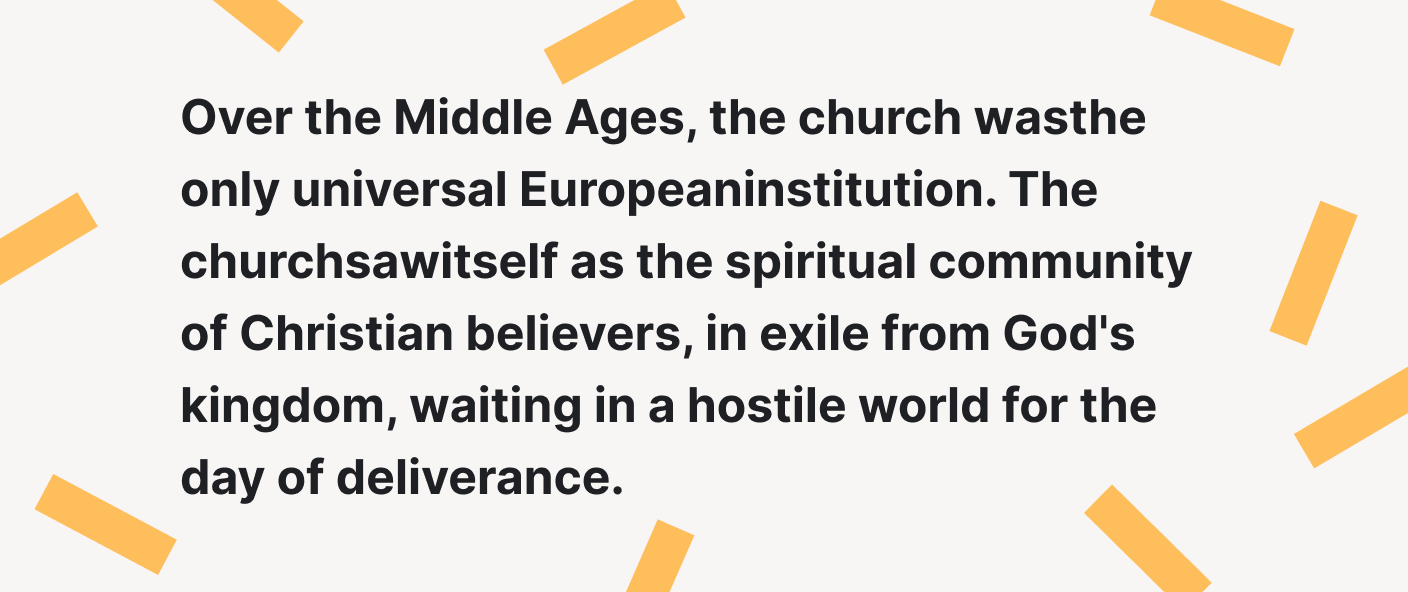
- Medieval Siege Warfare . Exploring methods of defense used during the Middle Ages might be an interesting research project.
- The Conditions of Hindu and Islamic women in Medieval India
- Why the Crusades Failed
- The Mechanical Water clock of Ibn Al-Haytham, his philosophy of the rise and fall of empires
- The Renaissance and its Cultural, Political and Economic Influence
- The Dark Ages as the Golden Ages of European History . Plenty of facts demonstrate civilization’s decline during the Middle Ages. It was, nevertheless, the time of significant scientific, literary, and technological progress. For some interested in writing a medieval literature dissertation: think of Dante’s Divine Comedy . Da Vinci made his groundbreaking study projects during the Middle Ages. It was the time when first universities, such as Cambridge and Oxford, were founded. Overall, this period has a lot to offer!
- Japan’s Development Under Edo/Tokugawa Shogunate
- Historical and Theological Context of Byzantine Iconoclasm
- Medieval Convivencia: Document Analysis
🕰 Modern History Dissertation Topics
- World History: Enlightenment in Society and its Impact on Global Culture
- Nationalism and its 19th Century History
- Why Mussolini and the Fascists Were Able to Seize Power in Italy
- Religious Symbolism in Renaissance paintings . Renaissance is well-known as a period when fine arts were thriving. It was an early modern birthplace of many technological and cultural advancements. Religion, however, was still a central topic in visual art.
- Industrial Revolution and its Impact on Western Civilizations
- Principles of Liberalism and Its Connection to Enlightenment and Conservatism
- “History and Topography of Ireland” by Gerald of Wales . Looking for an incredible Irish history dissertation topic? Then this document might be an interesting prompt. Its somewhat controversial tone of describing contemporary Irish culture, history, and traditions can be subject to a comprehensive analysis.
- Moral treatment of Mental Illness . Over the 19th and 20th centuries, psychology has changed. Moving from a scientific periphery, it became one of the central subjects of scholarly discussions. Mental illnesses were highly disregarded in earlier centuries. People even considered them to be manifestations of demonic possession. How did this attitude change? Why did people rethink psychology as a scholarly discipline?
- A History of the Cuban Revolution

- Abraham Lincoln’s Historical Influence
- Role of Women During the Spanish Civil War
- Conquest and Colonization of America by European Countries . Colonization of America is one of the grandest enterprises in the world’s political history. What were its driving forces?
- Origins and Trajectory of the French Revolution
- Major Impacts of Consumerism in contemporary world history
- Coco Chanel Fashion: History of Costume . Probably not the first topic for a history dissertation that comes to mind. Chanel is truly an iconic figure in modern history, though. She revolutionized the fashion industry concerning gender as well.
- Causes of the Breakup of the Former Yugoslavia
- The Russian Working Class Movement . Before 1861, the agriculture and peasant-owning system were the foundation of the Russian Empire’s economy. Serfs made up a significant part of the population, accounting for over 60% in some regions. Then the serfdom abolition happened. A lot has changed in the economic and social life of the country.
- Segregation During the 1960s
- Historical Development of Feminism and Patriarchy
- Monetary and Fiscal Policy during the Great Depression
🔔 History Dissertation Topics on Cold War
- The Role of Cold War in Shaping Transatlantic Relations in the Period from 1945 to 1970
- The showdown between the United States and the USSR . Cold Was was essentially the power struggle between the US and the Soviet Union. It unleashed in the aftermath of World War II. This political precedent came to an end with the collapse of the Soviet Union. However, the answer to the “Who won the Cold War?” question may be unclear.
- The Cuban Missile Crisis , its causes, and effects
- US Foreign Policy during the Cold War. Cold War, as a phenomenon, has many layers to it. Yet the one crucial is the contest of two ideologies: democracy and communism. How did the US shape its foreign policy and pursue its interests abroad? And how did the cultural and political setup within the country adjust to it?
- To what extent did the Cold War shape the US relations with Latin America?
- What was the importance of Berlin in the Cold War?
- Japan’s role since the end of the Cold War
- Cold War Politics, Culture, and War . Exploring the Cold War causes and effects can be quite a challenge. It is such a multifaceted phenomenon. It was a war led on many fronts. Both USSR and the US pursued their interests using a variety of methods.
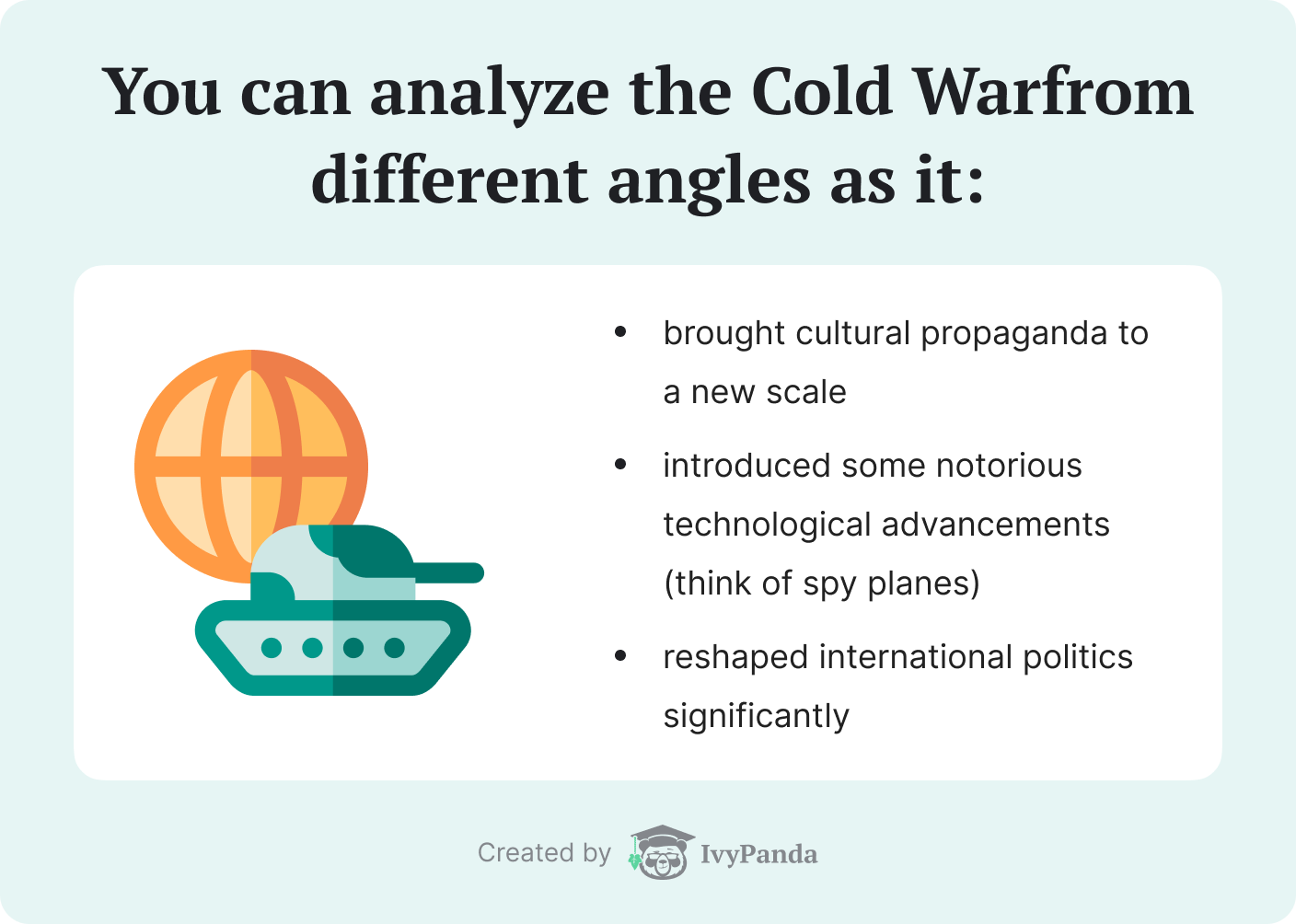
- How did Cold War propaganda influence the film industry?
- What were the challenges in the post-cold war world?
🗺 History Dissertation Topics: Geographical Regions
Every country has its historical course, and so does every continent. Geography has always been an important factor when talking about history. It shapes historical trajectory in varied, unique ways.
Look at a dissertation topics history list based on geographical regions:
🦅 American History Dissertation Topics
- History of Hollywood, California . Oh, Hollywood. A place where American movie history was born. What about Hollywood’s history? Although a less traditional American history dissertation topic, it is still a fascinating one. Explore the way technological advancements in filmmaking were introduced over the decades. How did they influence the film’s general style?
- History: Migration into the United States . How did migration influence the economy of the time?
- The Relationships between the Settlers and Native Americans
- Literary works’ Views on Slavery in the United States
- Causes of the Civil War in America
- What is the real meaning of a cowboy?
- The United States military experience through the eyes of films
- Attack on Pearl Harbor: Effects of Foreign policy
- Causes of Depression in the 1890s
- Has President Obama’s Presidency changed the US?
- The role of Founding Fathers in American Society and Religion
- Post-Civil War reconstruction . Consider the way America’s economy, trade, and finance transformed in the aftermath of the Civil War.
- Principal causes and consequences of the Spanish-American War
- Why was the Declaration of Independence written?
- The Significance of the Frontier in American History
- How is a “new racial narrative” in the U.S.A created?
- American Revolution and the Crisis of the Constitution of the U.S.A. Rethink the origins of the American constitution, as well as the following events. It could be an exciting thesis idea for an American history dissertation.

- Growth and Development of San Francisco and Los Angeles after the Gold Rush
- The Role of Racism in American Art
- Drug Use and Abuse in America: Historical Analysis
🏰 European History Dissertation Topics
- Age of Discovery in Europe. The Age of Exploration in Europe lasted from the 15th to the 17th century. Over this period, Europe actively engaged with other territories and continents. Discoverers formed new international relations and expanded geographical knowledge. This topic could also make an excellent cultural history dissertation.
- Analyzing the Impact of British Colonization
- Nationalism in World War II
- Effects of the Industrial Revolution concerning World War I
- The Rise and Fall of Napoleon and the Cause of Revolution . Napoleon is one of the most prominent figures in French history. What has shaped his career as a political leader?
- History of Hitler’s Nazi Propaganda . Consider a brief history of Germany. Undoubtedly, the rule of Hitler and the Third Reich was its most devastating chapter. The “art” of propaganda flourished during the nazi regime. It penetrated the cultural, political, and social life of the country.
- Evolution of the IRA
- Napoleon’s Strategy and Tactics in his Invasion of Russia . For someone interested in writing a military history dissertation.
- Industrial Revolution Impact on Gender Roles
- Witchcraft in Europe (1450-1750) . Witch hunts took place as early as the Middle Ages in Europe. Held by the Church in most cases, witch hunts targeted those who were suspected of practicing black magic. Examine this both astonishing and problematic phenomenon.

- French Revolution: Liberal and Radical Portions
- West European Studies: Columbus’s Journey
- History of Feudalism . Feudalism dominated the European way of life during the Middle Ages and Renaissance. What were its distinctive features as a system? Why did it eventually fade away?
- Europe’s perception of Islam in the Early and Middle centuries
- Cold War Consequences for European Countries
- Mutated Medical Professionals in the Third Reich: Third Reich Doctors
- Was the Holocaust the Failure or the Product of Modernity?
- How did the use of print change the lives of early modern Europeans ?
- Early Modern England: a Social History
- Jewish Insight of Holocaust
⛰ Indian History Dissertation Topics
- History of the Indian Castes. The Indian Caste system is a complex and unique example of social stratification.
- Mahatma Gandhi’s Leadership . Gandhi is, for sure, among the greatest human rights advocates in the world’s history. His one of a kind leadership style is subject to many studies. While practicing a peaceful form of civil protest, he fought for equality, independence, and compassion.
- Political conflicts in India in the XVII century
- Impacts of the First World War on British Policies in India
- Movement Against the British rule in India. Led by Mahatma Gandhi, with the support of the National Congress, the movement took place in 1920-22. It sought to fight for the freedom of Indians.
- The Origin and Course of the Indian revolt of 1857
- The Issues of the Partitioning of India in 1947
- India Since 1900 . India is a region rich with unique traditions. Its spiritual and cultural heritage goes back to antiquity. The country’s authentic art and architecture, music, and cuisine have served as an inspiration worldwide. A considerable part of its history is, however, affected by British rule.
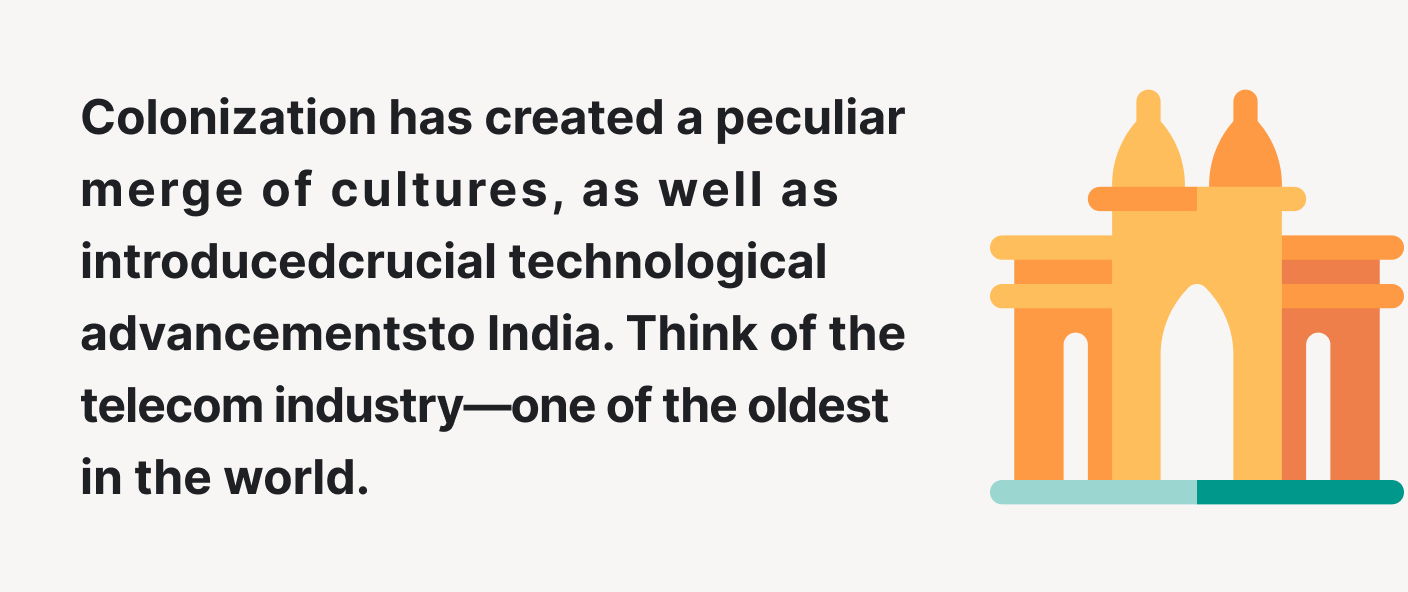
- Women in Hinduism and Buddhism
- The British East India Company
🌍 African History Dissertation Topics
- Ancient Societies in Mesopotamia and Ancient Societies in Africa: a comparison . Egypt is one of the most ancient African civilizations. Its origins go back to the third millennium B.C. Back then, the cultural exchange between Egypt and Mesopotamia was flourishing. What were the significant differences between the two civilizations? What did they have to offer to one another?
- Political Violence in South Africa between 1985 and 1989
- Did History of Modern South Africa begin with the Discovery of Diamonds and Gold?
- Nelson Mandela: “Freedom in Africa.” Nelson Mandela is, without a doubt, one of the central figures in African history. His devotion and tireless effort in fighting against apartheid were remarkable. Thanks to him, many sub-Saharan countries enjoy the freedoms and advances of a democratic society.
- The Cult of the Dead in West Africa: The Kongo People . African tribal rituals and traditions are unique and specific to their region. Cult of the Dead is prevalent in Western African culture. It can be notoriously known as the origin place of voodoo and other black magic practices. There is yet much more to this culture. Dismantling some prejudices could make an excellent African history thesis.
- Christianity, Slavery, and Colonialism: the paradox
- The Colonial War in Southwest Africa
- African-Europe Relations between 1800 and 2000
- Impacts of Slavery and Slave Trade in Africa
- African Communities in America

🎨 Art History Dissertation Topics
Art comes in all shapes and forms. To grasp it better, we can explore each kind separately. Here’s a list of art history dissertation ideas:
🎶 Topics on Performing Arts
- History and Development of Ballet . Ballet is an art form with a long history. Initially, a specific dance originated in Medieval Italy. It was later brought to France and Great Britain. Ballet thrived in the 20th century Russia, where Russian choreographers brought it to the highest level of mastery.
- The Life and Work of William Shakespeare: His Contribution to The Contemporary Theater
- Jazz Music in American Culture . Jazz is one of the most complex and exciting music genres of all time. It was born in the 20’s century black communities of New Orleans and quickly spread across America and then the world. The genre, however, will always be an integral part of African-American identity.
- The Instrumental Music of Baroque: Forms and Evolution
- Rock Music of the 1970s
- Michael Jackson’s Life as a Musician and Choreographer
- Development of the Symphony Orchestra in the 19th and 20th Century
- Woodstock Music Festival . This massive music festival that first took place in 1969 was the epitome of hippie culture. It has a rich history that once again underscores the importance of performing arts in Western culture.
- The History of Modern Chinese Music
- The Renaissance Theater Development. The era in which both visual and performing arts were thriving. It has a lot to offer for proper dissertation research.
🖼Topics on Visual Arts
- Art Period Comparison: Classicism and Middle Age
- Vincent Van Gogh: Changes in the Technique
- The Ambiguity of Mona Lisa Painting

- Orientalism in Western Art . It’s commonly associated with romanticism and some 20th-century artworks. Orientalism is a Western term that speculates the aesthetics of the Orient. Consider this concept as a prism through which Westerners viewed the Eastern world.
- Classical Art and Cubism: History and Comparison
- Postmodern and Modern Art . The 20th and 21st centuries have been a breeding ground for many forms of fine art to emerge and flourish. Some art movements presented their philosophy in the form of manifestos. These texts can be nothing but a pure treasure for someone writing an art history dissertation.
- Female Figures in Ancient Greek Sculpture
- Andy Warhol’s Career . Pioneer of pop-art, creator of Studio 54, and a style icon.
- Filippo Brunelleschi and Religious Architecture
- The Photographic Approaches Towards American Culture of Robert Frank and Garry Winogrand
📋 How to Structure Your Dissertation?
An adequately structured history dissertation can immensely help students. It ensures that they present their ideas and thoughts logically. Sticking to a particular dissertation structure is an essential element of such work.
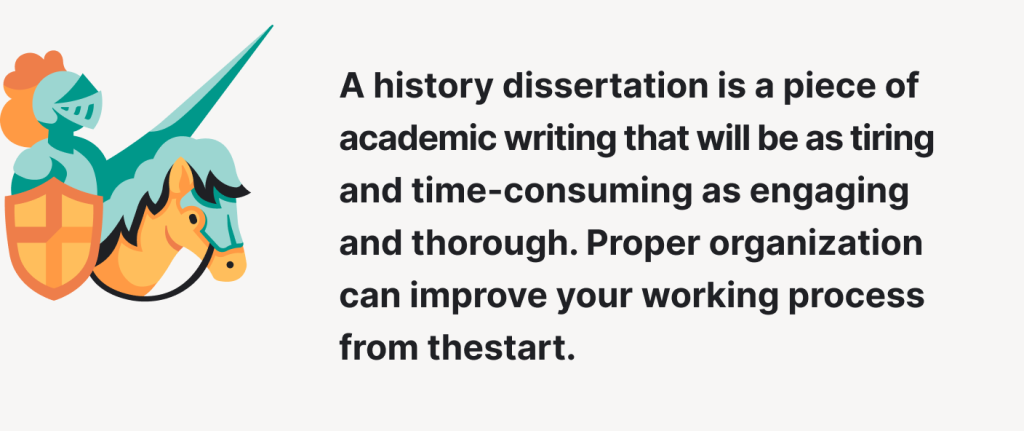
The general plan of any dissertation type is the following:
- Title Page. A title page should only contain essential information about your work. It usually shows your name, type of the document (thesis, research paper, dissertation), and the title itself. A good history dissertation title is crucial! It’s the first thing a reader will see.
- Acknowledgments. Do you wish to give credit to someone for supporting you during the tiresome months of your work? This is the right part to do so, be it your family, friends, or professors. It is an excellent form to express gratitude to those who proofread your drafts. Or those who brought you another cup of coffee when you needed it.
- Declaration. This section is your written confirmation. You declare that all the research and writing is entirely original and was conducted by you. If someone intellectually contributed to your project, state it in the acknowledgments.
- Table of Contents. Essentially, it’s a brief structure of your dissertation. List every section that you’ve included in your academic paper here.
- Abstract. This is the section where you write a brief summary of your dissertation. It should describe the issue, summarize your core message and essential points. List your research methods and what you’ve done. Remember to make it short, as the abstract shouldn’t exceed 300 words or so. Finish the part with a few essential keywords so that others can find your work.
- Introduction. A dissertation introduction presents the subject to the reader. You can talk about the format of your work. Explain what you plan to contribute to the field with your research.
- Literature Review. The chapter reviews and analyzes pieces of scholarly work (literature) that have been made on the subject of your research. The sources should present relevant theories and support your thesis. Be sure to discuss the weaknesses and strengths of the selected area of study and highlight possible gaps in this research.
- a code of conduct;
- research limitations;
- research philosophy;
- research design;
- ethical consideration;
- data collection methods;
- data analysis strategy.
- Findings and Results. Restate everything you have found in your research. However, do not interpret the data or make any conclusions yet.
- Discussion and Conclusion. In this chapter, you should personally interpret all of the data and make conclusions based on your research. It is essential to establish a logical link between the results and evidence. Finally, conclude the overall study. You can add final judgments, opinions, and comments.
- References. This section contains a list of references to all the sources that you used. Write down every material, which you quoted, mentioned, or paraphrased in your work. Check your educational institution’s guidelines to see how to do so correctly.
- Bibliography. Similar to the reference section, a bibliography is a list of sources you used in your dissertation. The only difference is that it should contain even the sources you don’t directly mention in your writing. Whatever helped you with the research, you state here.
- Appendices. The section may include any supplementary information that explains and complement the arguments. Add pictures, diagrams, and graphs that serve as examples for your research subject.

Writing a dissertation is the right challenge for those with ambitions and lots of determination. It is a lot like a marathon, and it starts with choosing the right topic. We hope that you will find one for yourself on this list. Good luck! Share the article to help those who may need a piece of advice or some history dissertation topics.
🔗 References
- How To Write A Dissertation: Department of Computer Science, West Lafayette, Purdue University
- Ph.D. Thesis Research, Where Do I Start: Don Davis, Columbia University
- Writing a Thesis or Dissertation – A Guide to Resources: Gricel Dominguez
- The Elements of Style: Strunk, W. Jr., White, E.B., Angell, R.
- A Collection Of Dissertation Topics In American History: asqauditconference.org
- Yale History Dissertations: Department of History, Yale University
- Dissertation Outline: School of Education, Duquesne University
- Developing a Thesis Statement: The Writing Center, University of Wisconsin–Madison
- Writing an Abstract: The Writing Center, George Mason University
- Formatting Additional Pages: University of Missouri Graduate School
- Reference List vs. Bibliography: OWLL, Massey University
- How to Write Your Dissertation: Goldsmiths University for The Guardian
- Tips on Grammar, Punctuation and Style: Kim Cooper, for the Writing Center at Harvard University
- Acknowledgments, Thesis and Dissertation: Research Guides at Sam Houston State University
- Thesis Formatting, Writing up your Research: Subject Guides at University of Canterbury
- Share via Facebook
- Share via X
- Share via LinkedIn
- Share via email

By clicking "Post Comment" you agree to IvyPanda’s Privacy Policy and Terms and Conditions . Your posts, along with your name, can be seen by all users.
IvyPanda uses cookies and similar technologies to enhance your experience, enabling functionalities such as:
- Basic site functions
- Ensuring secure, safe transactions
- Secure account login
- Remembering account, browser, and regional preferences
- Remembering privacy and security settings
- Analyzing site traffic and usage
- Personalized search, content, and recommendations
- Displaying relevant, targeted ads on and off IvyPanda
Please refer to IvyPanda's Cookies Policy and Privacy Policy for detailed information.
Certain technologies we use are essential for critical functions such as security and site integrity, account authentication, security and privacy preferences, internal site usage and maintenance data, and ensuring the site operates correctly for browsing and transactions.
Cookies and similar technologies are used to enhance your experience by:
- Remembering general and regional preferences
- Personalizing content, search, recommendations, and offers
Some functions, such as personalized recommendations, account preferences, or localization, may not work correctly without these technologies. For more details, please refer to IvyPanda's Cookies Policy .
To enable personalized advertising (such as interest-based ads), we may share your data with our marketing and advertising partners using cookies and other technologies. These partners may have their own information collected about you. Turning off the personalized advertising setting won't stop you from seeing IvyPanda ads, but it may make the ads you see less relevant or more repetitive.
Personalized advertising may be considered a "sale" or "sharing" of the information under California and other state privacy laws, and you may have the right to opt out. Turning off personalized advertising allows you to exercise your right to opt out. Learn more in IvyPanda's Cookies Policy and Privacy Policy .

- Undergraduate Study
- Postgraduate Study
- Welcome to our Virtual Classroom
- Foundation Year
- Research Areas
- Funding opportunities
- Research Seminars
- Postgraduate Workshops
- Visiting scholars
- Visiting students
- Seeley Library
- Faculty news
- Health & Safety
- IT facilities
- Equality & Diversity
- Directions & Contact
- Trevelyan Lecture 2024
- Timetable and lecture lists
- Academic Office Holders
- Professional Services Staff
- Researching your dissertation
When it comes to thinking about dissertations, it's useful to know how and where to look for material, both within Cambridge and further afield. The following is some guidance on finding various different types of material, whether primary or secondary.
Finding books in Cambridge
Finding books outside cambridge, finding articles.
- Unpublished material
Online sources
Subject gateways.
For further help our LibGuide has lots of information about how to carry out research in History.

Finding secondary material
The best place to begin looking for secondary material is a specialist bibliographical database covering your area of interest, eg. the Bibliography of British and Irish History . Teaching staff will be able to advise on what databases there are in your subject area. There may not be a specialist database covering your topic, in which case a more general literature search may be the best way to begin. Literature searches may also help you to find supplementary material, and to identify what is available within Cambridge.
Literature searches will help you to identify a viable topic of research, or a new angle from which to approach a subject, and they will also ensure that you do not duplicate work in progress. You will need to be compiling lists of material to consult at the same time as taking organised notes and writing; you should not wait to complete the reading before beginning to write.
For searching across library catalogues in Cambridge, use iDiscover ; as well as searching library holdings it also retrieves records for ejournals and ebooks, and can be extended to search databases such as JSTOR . You can also turn searches into RSS feeds (for alerts when any relevant items are added to the catalogue).
The University's ebooks@cambridge team subscribe to thousands of ebook titles, including key resources such as the Cambridge Histories and Cambridge Companions. These are searchable through iDiscover; if there is an electronic copy of the book you are looking for, it will have the phrase "[electronic resource]" in the record after the title, and you can follow the link in the record directly through to the text. Ebooks are easy to use, can be accessed from home and can normally have several users accessing the text simultaneously, so access is almost always available.
You may need to extend your search beyond Cambridge, to see if there is material available elsewhere which is not held by any of the libraries in the university. Library Hub Discover is the best way for finding material held in libraries in the United Kingdom; it is the combined catalogue of the UK's major research libraries (including the British Library, National Library of Scotland and National Library of Wales), as well as various specialist research libraries and collections. The catalogue contains over 32 million records. It is possible to search by subject, author, title or keyword, and you can restrict your search by date, place published, type of material (eg. periodicals, maps), or language. Search results will display where an item is held, and provide links to an electronic copy, if there is a freely available one.
The Document Delivery Service is available to help support students access difficult to locate material. This includes Inter-Library loan and Rapid Inter-Library loan.
If you are working away from Cambridge (for example, during the vacation), you may be able to get access to other higher education libraries in your area; visit SCONUL Access for more information.
For catalogues of libraries outside the United Kingdom try WorldCat , a catalogue of over 10,000 libraries, which indexes 1.5 billion items.
You will need to look at journal articles as well as books, as journals are often where the latest, most up-to-date historical research is published. There are several citation databases which you can search for articles which might be relevant to your topic. As well as general historical databases, there are also more specialised ones, covering various regions, periods and topics. (Most of these will require a Raven password for off-campus access.) To search across the full range of electronic journals Cambridge subscribes to go to the ejournals@cambridge page. It is also possible to search across popular databases for article titles (as opposed to journal titles) on iDiscover.
Key general databases
- Historical Abstracts: This covers the history of the world from 1450 to the present (excluding the United States and Canada). Published since 1954, it indexes over 3,100 academic historical journals in more than 40 languages; thousands of new citations are added every year.
- Scopus: This database is by far the largest citation database available to members of the University. It covers a range of disciplines and includes information about where articles have been cited.
Digital journal archives
- JSTOR: A digital archive of over 1,000 journals; it can be subject-searched and gives immediate online access to articles in titles to which the University subscribes.
- Project Muse: Full-text access to nearly 500 journals from over 130 scholarly publishers.
Region/country databases
- America: History and Life: A companion title to Historical Abstracts. There is not online access, but the print copy can be found in the University Library (North Front, Floor 6, classmark: P660.b.31).
- Bibliography of British and Irish History: A bibliographical database of historical writing dealing with the British Isles, the British Empire and the Commonwealth, from 55 B.C. to the present, containing over 500,000 records. (It is worth noting that it is not an exhaustive bibliography of works relating to the British Empire and the Commonwealth; it covers the relations of those countries in the Empire and the Commonwealth with Britain.)
- Bibliography of Asian Studies: A bibliographical database covering articles and book chapters on all parts of Asia published since 1971.
- Index Islamicus: A bibliographical database of books, articles and reviews on Islam and the Muslim world.
Chronological databases
- International Medieval Bibliography: A bibliographical database covering medieval civilization, containing over 440,000 records.
Topical databases
- ATLA Religion Database: A bibliographical database covering theology and church history, containing over 1.7 million records.
- Bibliography of the History of Art: A bibliographical database on European and American art from late antiquity to the present, covering material published between 1975 and 2007.
- History of Science, Technology & Medicine: amalgamation of a few separate bibliographies. Includes historiography and the role of science in society and culture from prehistoric times onwards.
Unpublished material (dissertations and theses)
There are several different databases for searching for university dissertations and theses, whether produced in the United Kingdom or further afield.
- History Online: Contains a directory of history theses and research Masters produced in the U.K. since 1970, along with a list of theses currently in progress.
- EThOS: The national thesis service: a British Library-administered database of over 300,000 theses from U.K. universities. Those which have already been digitized can be downloaded for free, but if the thesis you want to look at has not yet been digitized, you will have to pay a fee. (Cambridge dissertations are listed on Ethos but not supplied by the service.
- ProQuest Digital Dissertations: A database of 2.4 million dissertation and theses citations from 700 academic institutions worldwide, offering full text for most of the dissertations added since 1997.
- Apollo: Cambridge University's institutional repository. Includes a collection of voluntarily deposited Ph.D. theses.
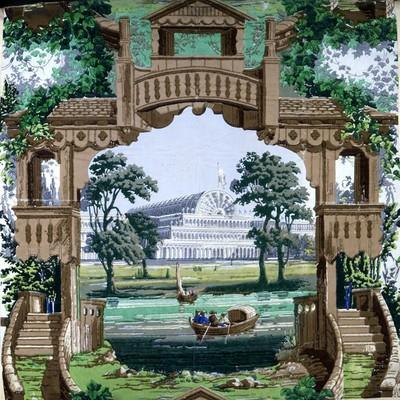
Finding primary sources
You can access more online resources through iDiscover and the UL's eresources@cambridge page , which includes links to visual and sound resources, film and video services, and newspapers (both archives and current).
Some examples of online collections of primary source material:
- American Memory (Library of Congress): online collection of documents for American history, comprising written and spoken words, sound recordings, still and moving images, prints, maps, and sheet music.
- British History Online: digital library of primary and secondary sources for medieval and modern history of the British Isles
- Empire Online: online collection of original documents relating to empire studies, including exploration journals, periodicals, government papers, maps.
- First World War: Personal Experiences: database of digital images of original documents, including diaries, letters, personal narratives, scrapbooks, and visual sources.
- German History in Documents and Images: digital collection of original historical materials documenting German history from the beginning of the early modern period to the present.
- UK Parliamentary Papers includes over 200,00 House of Commons sessional papers from 1715, with supplementary material back to 1688.
In Cambridge
ArchiveSearch provides finding aids and links to digital records for the majority of archives located in the city of Cambridge., including the archives of many colleges, and of the Churchill Archives Centre .
In the United Kingdom
You may need to visit archives outside Cambridge as part of your research. To find out what archival material is held where, there are various union catalogues of archive material:
- National Archives: Formerly the Public Record Office, this repository holds the national archives for England, Wales and the United Kingdom (there are separate national record offices for Scotland and Northern Ireland). They have extensive online catalogues , which can be searched by subject, and you can access their online collections and download copies of documents.
- National Register of Archives: A register of over 44,000 unpublished lists and catalogues, detailing the nature and location of manuscripts and historical records relating to British history. These are "non-official" archives covering the holdings of local record offices, national and university libraries (including Cambridge), specialist repositories, museums and other bodies in the United Kingdom and abroad, as well as papers held privately by individuals, firms and institutions. The research guides on the website explain how the National Register of Archives can be used for locating material on particular topics.
- Archives Hub: A national gateway to descriptions of archives of over 180 UK repositories (including Oxford and Cambridge); again, you can search by subject.
To search the holdings of archives outside the United Kingdom, try Archive Grid , a major catalogue of historical documents, personal papers and family history material held in repositories around the world; you can search for collections by topic.
Subject gateways are online portals to subject-specific resources, and can be excellent places to look for more information on your topic. Some gateways where the sites have been evaluated by experts include:
- History Online: Created by the Institute of Historical Research, this initiative indexes books and journal articles, details history lecturers in the U.K., digital history projects, and current and past historical research.
- History Data Service: This project collects, preserves, and promotes the use of digital resources, which result from or support historical research, learning and teaching.
- Connected Histories: A collection of digital resources on early modern and 19th century British history.
- Online resources
- Electronic resources by paper
- Libraries, archives, museums, galleries
- Keeping up-to-date

IMAGES
VIDEO
COMMENTS
Since 2009, we have published the best of the annual dissertations produced by our final year undergraduates and award a 'best dissertation of the year' prize to the best of the best. Best …
Since 1882, when the first dissertation was presented to the history department for doctoral qualification at Yale, hundreds of scholars have since followed that same path, dedicating …
Since 2009 the Department of History at the University of Bristol has published the best of the annual dissertations produced by our final-year undergraduates. We do so in …
Dissertation Repository to provide access to the excellent, archive-driven research undertaken by final-year History students. Subject areas include Modern British History, Medieval and Early Modern History, and Modern …
These will provide a comprehensive guide to what has been written in your area and may use different subject headings. Reference databases and bibliographies can be especially useful …
️ Willing to write a dissertation in history, but no ideas come to mind? We've got an article for you! Check our list of great history dissertation topics.
Historical Abstracts: This covers the history of the world from 1450 to the present (excluding the United States and Canada). Published since 1954, it indexes over 3,100 academic historical journals in more than 40 languages; …
The dissertation is compulsory for all History single honours students and an option for all joint degree students. The dissertation is weighted at 30 CATS and must be based on a final year …